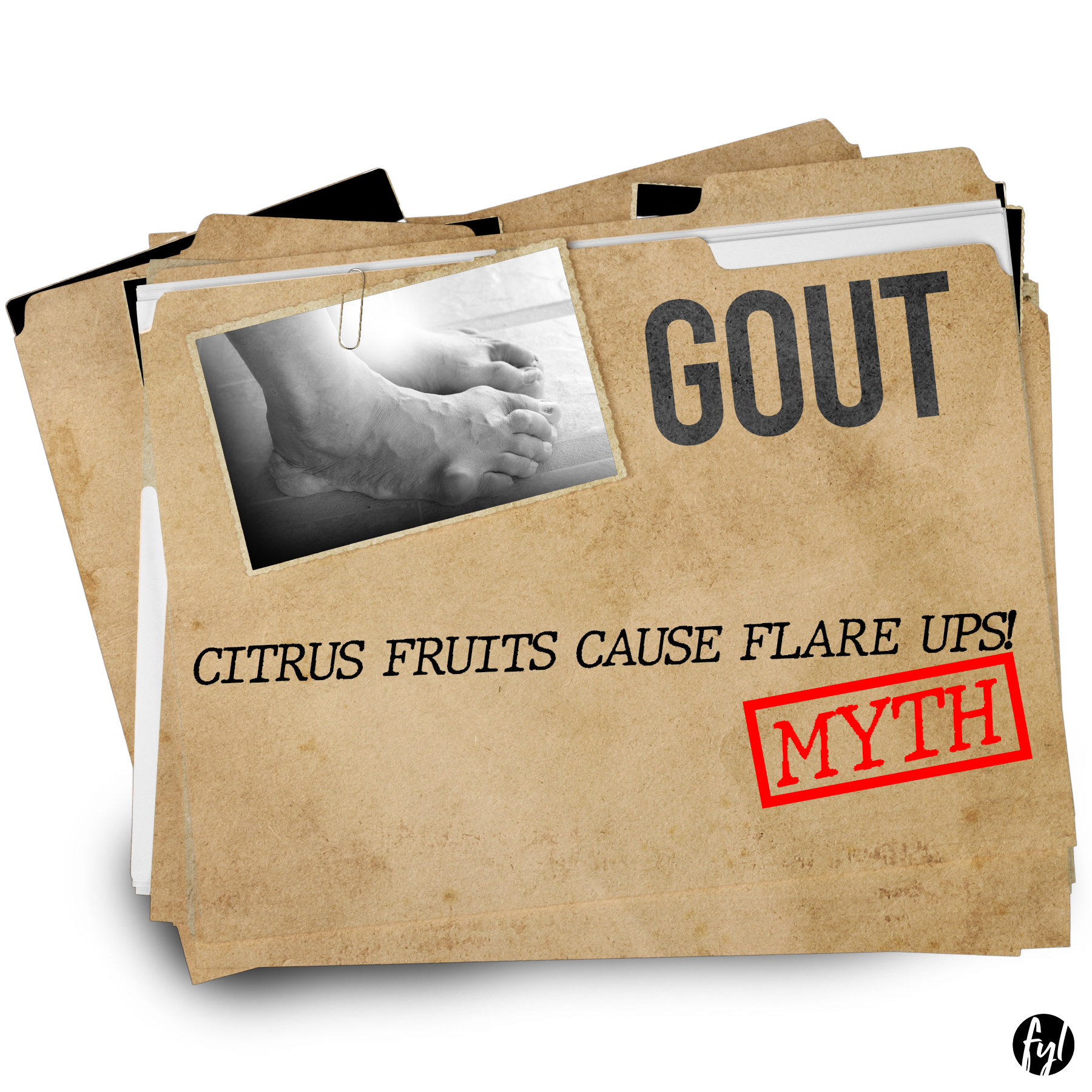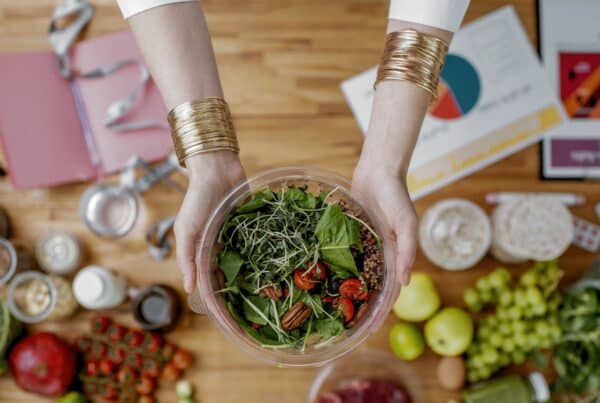Gout is a type of arthritis that manifests with symptoms of acute pain, inflammation and swelling of the joints. It most commonly occurs between the joint of the big toe and the ball of the foot, and men are more commonly affected (7%) compared to women (11%). While diet can play a big part in your risk for developing gout as well as the occurrence of flares, there are some dietary myths surrounding gout that really don’t ring true. We’ve debunked the fact from fiction to give you the lowdown here.
Myth 1: Only Alcoholics Get Gout
While excessive alcohol intake does increase your risk of gout, it definitely doesn’t mean that people with a low or moderate intake can’t suffer from gout. If you have been diagnosed with it, however, reducing your alcohol intake can reduce the occurrence of episodes.
- Inadequate water intake can also increase the occurrence of gout, and this often goes hand in hand with a higher alcohol intake.
- Try replacing some of your alcoholic beverages with some water, soda water or herbal tea can also help.
- We recommend consuming 2-2.3L of fluids per day.
Myth 2: Citrus Foods Exacerbate Gout
This is a common myth and often sees people with gout avoiding a lot of fresh fruits and vegetables. Citrus foods do not impact gout, so it is fine to include oranges and tomatoes in your diet. However, high intakes of sugar have been linked with the occurrence of gout, so it’s best to skip the fruit juices and go for whole fruit instead.
Myth 3: I Can’t Eat Seafood, EVER
Some seafood contains high amounts of purines, which is a common, naturally occurring chemical found in some foods. High intakes of purine-rich foods have been shown to exacerbate gout, however a modest intake of seafood is ok for most people, it is best to avoid sources of fish high in purines.
- Avoid anchovies, mackerel, mussels, prawns, shrimp, scallops, herring and caviar
- Include small amounts of salmon, tuna, flounder and other white fish
Our Advice
Dietary strategies can help you reduce your risk of developing gout and experiencing flare-ups but you don’t need to exclude your favourite fruits or whole food groups. Here are our top tips for reducing your risk:
- Limit alcohol intake
- Aim for 2L of water daily, and more in hot weather or doing strenuous activity
- Maintain a healthy weight, as being overweight increases your risk
- Limit high sugar foods such as lollies, cakes, biscuits, ice cream and soft drink
- Include low-fat dairy as this can help reduce levels of uric acid and therefore reduce the risk of attacks
- Include cherries: some evidence shows that consuming cherries can help with reducing attacks
If you’d like to know more or want individual advice, head to the link to speak with one of our dietitians.







